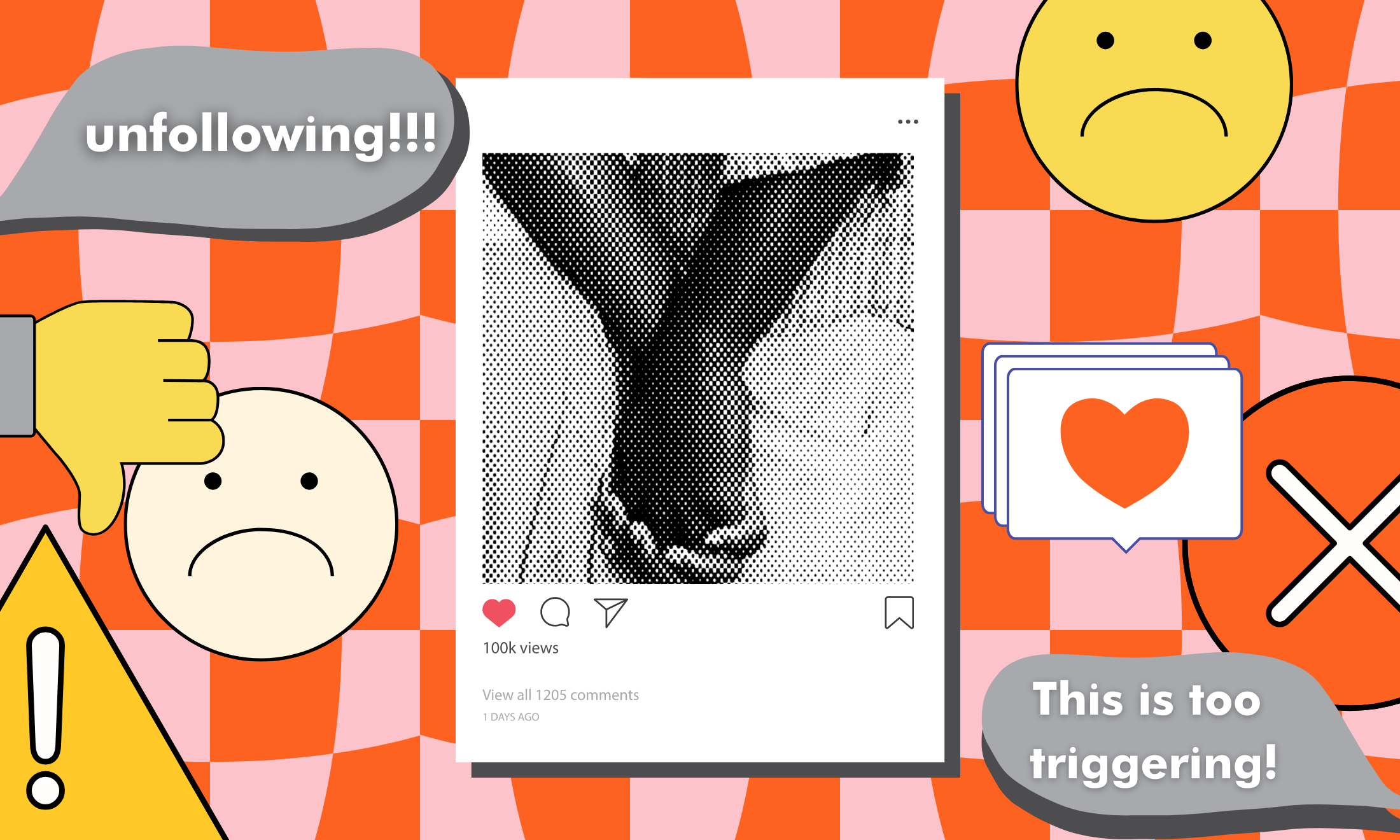
Instagram is enabling white mummy bloggers to silence black women like Kelechi Okafor
Seyi Akiwowo
11 Nov 2019
Photography via Instagram
Last year, we finally had statistics to support the experience black communities online have been sharing for years: black women are more likely to be harassed online than white women. Online misogynoir can take many forms, from denial of service, hate speech, trolling and sexual objectification. Couple gender and race with other intersecting forms of identities with pride and expression and you’re the perfect prey for racist, sexist trolls.
An example of micro-level abuse and its trauma can be seen in last week’s story with Mother of Daughters, Clemmie Hooper, and the targeting of writer, actor and mum Kelechi Okafor, whose Instagram was briefly removed and then reinstated. News broke that the adored Instagram influencer, blogger and midwife was behind a fake account maliciously trolling and abusing other mummy influencers. Victims and targets of the eight-month-long orchestrated attack included black women and expecting mothers-to-be.
Kelechi claims she was one of the black mums-to-be Clemmie targeted under her account “AliceinWanderlust”. Why? Because Kelechi dared to share her pregnancy announcement with her followers and friends who were doubly happy and excited for her as she not too long ago honestly and bravely revealed she had a miscarriage.
This is what makes Clemmie’s actions both disturbing and upsetting. Clemmie, a midwife and mum of four, knows the emotional rollercoaster mums-to-be go through and the sensitivity and love that is needed. Clemmie also knows that black women are five times more likely to die during or after childbirth than white women. She even discussed this two months ago on her podcast with Candice Brathwaite, a black woman who she wrote vile racist comments about, stating that Candice is “really aggressive” and used “race as a weapon”.
For too long, the stereotype of a troll has been a greasy angry man, living in his mum’s basement. This is far from true. Yes, there are incel groups who very much fester on their collective hatred of successful women, but as this story shows, our 21st century online trolls very much include our “faves”, our political leaders, maybe even our friends and work colleagues.
“Our 21st century online trolls very much include our ‘faves’, our political leaders, maybe even our friends and work colleagues”
What is even more enraging is the response from Instagram. During the course of last Saturday night, Clemmie’s followers allegedly reported Kelechi’s Instagram account after she posted stories speaking out against Clemmie’s actions. Reporting is an act of online intervention I would ordinarily promote, but this wasn’t a kind, sincere intervention. It was likely an attempt to silence the victim, causing further trauma. Instagram deleted Kelechi’s account, while Clemmie’s 24-hour apology disappeared and her account remained.
Instagram, owned by Facebook, silenced, de-platformed and further traumatised the victim. They chose to pick the side of “AliceinWanderlust”, a woman displaying racist and vile behaviour – the very behaviour they claim is against their Community Guidelines. Instagram silencing Kelechi also sends a horrific message to Clemmie’s other victims who should also be encouraged to speak out not made to feel even more fearful.
Even so, the outpouring of mass support for Kelechi was truly beautiful to see. Black women did what they do best and mobilised, supported, resisted the racist system and demanded change. They posted videos on how to report Instagram’s faux pas, donated money to Kelechi to compensate for the loss of income and Daniellé Dash wrote a brilliant gender and race analysis of the situation. I believe this is why Kelechi’s account has been reinstated. But Instagram, and its parent company Facebook, cannot continue to rely on the free labour from safe and supportive spaces to fix their mess.
I write this as a survivor of online abuse and a campaigner for a safer internet for all. I choose my words very carefully as I don’t wish to inflict or incite abuse on anyone. But reasonable questioning and analysis, particularly of feminists, leaders, activists and public figures, is accountability. Clemmie has failed to respond to the black women she trolled, nor to tell her followers to stop attacking Kelechi. Silence, in this case, is very much compliance and tapping out is copping out.
“It’s time for Clemmie and anyone else using a fake social media account to troll and abuse others to properly apologise”
I encourage everyone to demonstrate digital citizenship on their own platforms. Digital citizenship is all about our digital rights and responsibilities – more so if you’ve cultivated a large platform. Just like offline, we cannot sit back and watch bullying and trolling escalate in our very own comment section all because of engagement. It’s time for Clemmie and anyone else using a fake social media account to troll and abuse others to properly apologise and do the work to show repentance and change.
It’s safe to say that the internet has transformed our social, cultural and political lives. Yet not all of this transformation has been positive. In recent years, we have seen the growth of glitches: violations of human rights and threats to democracy online. These glitches are preventing the internet from continuing to provide positive and progressive change and failing to fulfil its potential. Increases in forms of online abuse are stifling freedom of expression, eroding our democracy and cohesion. Constant violations of data and privacy mean that our online spaces are increasingly becoming hijacked and weaponised and technology is reproducing and replicating existing inequalities we see in society.
Instagram must take the necessary steps to work with users and civil society groups to make their platforms safer for women, particularly black women. We need a black, queer feminist approach to the internet to challenge all issues related to the internet and technology from access, to expression and the digital economy. I hope Clemmie refuses to be centred as the victim of social media in this scandal and takes full responsibility for her ongoing actions this year and begins the work – including publicly apologising to every single person she made a victim. I hope we all reflect on our own online (and offline) behaviours and take responsibility to make our corners of the online world safer for all.
Seyi Akiwowo is the founder of Glitch, a not-for-profit organisation that exists to end online abuse.









